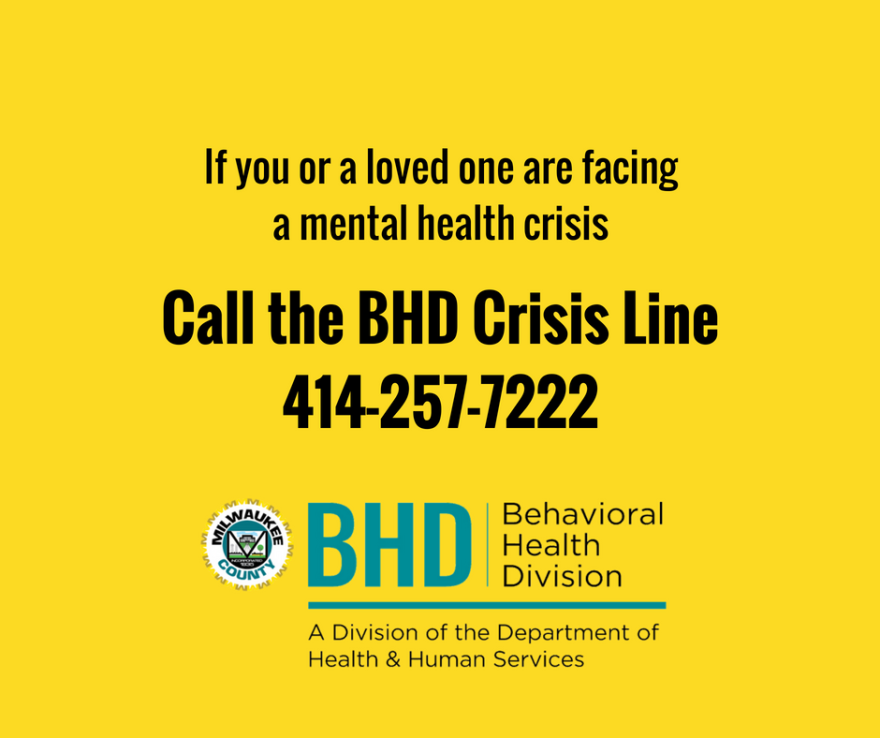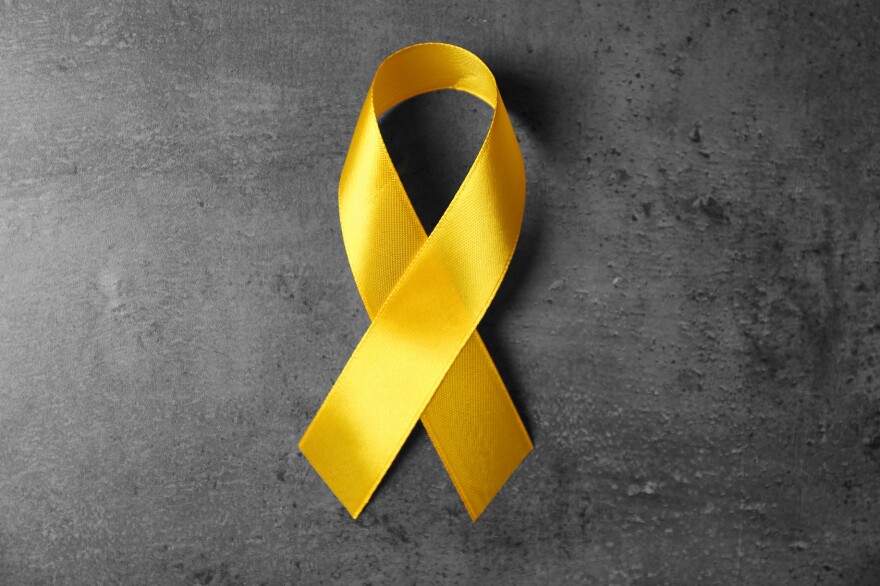The recent deaths of food writer and host Anthony Bourdain and designer Kate Spade have cast the issue of suicide into the public eye. But while those high-profile cases generated headlines, suicide has been a significant public health issue for years. In fact, suicide is the 10th leading cause of death both in Wisconsin and nationally.
The suicide rate is also climbing. According to a recent report from the CDC, there was a 25 percent increase in the rate of death by suicide around the country between 1999 and 2016.
READ: CDC: U.S. Suicide Rates Have Climbed Dramatically
Doctor Sara Coleman, who is a clinical psychologist with Milwaukee County’s Behavorial Health Division, says current statistics may not even accurately reflect the full extent of the problem.
When people die by suicide, she explains, it can be easy to look at them as individual cases and fail to see the larger picture, which reveals a public health issue of growing importance and concern. Coleman notes that this contributes to a disconnect between the severity of the problem and public awareness of the issue.
"I think a lot of people think of suicide as a free willed choice," she says. "And I really think it's part of the way that people view what that kind of death means to think that it's different than an illness like cancer or a car accident - something you wouldn't have chosen."
Mental health professionals, Coleman says, have a different perspective. For people who are struggling, whether they have a chronic mental illness or not, suicide can seem like the only option in that moment. "But if you can give them some time... sometimes it's literally a few minutes later, they wouldn't have chosen for their lives to be over," she says.

Although suicide deaths have risen across the country, states with a higher prevalence of gun ownership, like Wisconsin, have a rate of suicide approximately double the national average, Coleman explains. "If someone is feeling suicidal, and chooses to use a gun to end their life, the lethality is much greater."
Limiting access to firearms has been widely discussed lately, especially in light of school shootings. However, considering the issue of suicide, Coleman says it is an even more pressing concern.
From 2013 until March 2018, 41 people were killed in school shootings, Coleman says, while every single year, 1,000 youths between the ages of 10 and 19 kill themselves with a firearm. She believes efforts to secure guns and limit their access to people at risk of suicide is essential.
Trauma is another predictor for increased risk of suicide. "It reduces your resiliency so that when life's hard things come around, you don't have the same resilience to fight back," Coleman explains. Oftentimes people who experience childhood trauma, such as abuse or neglect, grow up without a natural support system, which can be crucial in preventing suicide.
There are usually warning signs of suicide, Coleman says. This list can include mental illness, substance problems, a history of suicide attempts, and traumatic events such as abuse, divorce, or natural disasters. It is important, especially in the aftermath of high-profile celebrity suicides, to check in with people, she says.
If you believe someone is suicidal, "the most important thing is to take them seriously and listen to them. And don't be afraid to ask clear-cut, directed questions."
Coleman believes one thing that will help decrease the number of people dying by suicide is "to work on people believing that suicide is preventable... Let people know that there's still hope."

Resources for Suicide Prevention
- If you believe there is an imminent danger, call 911.
- 24/7 Crisis Text Line: Text HOME to 741-741
- Milwaukee Behavioral Health Division 24/7 crisis line:(414) 257-7222
- Psychiatric Emergency Room: 9499 West Watertown Plank Road, Wauwatosa, WI (414) 257-7260
- Crisis Resource Centers: 5409 West Villard Avenue, Milwaukee, WI (414) 539-4024 AND 2057 South 14th Street, Milwaukee, WI (414) 643-8778







